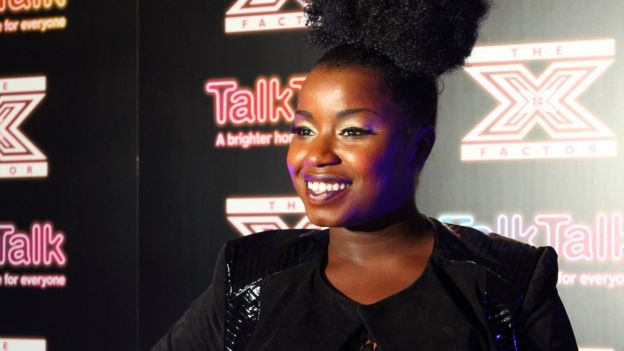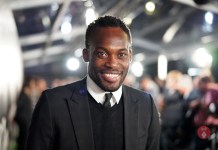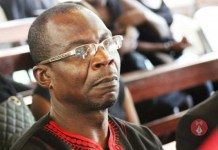Tulisa Contostavlos has apologised for accusing X Factor contestant Misha B of bullying, but denied her comments were racially motivated.
The singer was responding after Misha B said that X Factor producers foisted an “angry black girl” narrative onto her, during the eighth series in 2011.
The 28-year-old said the experience left her with suicidal thoughts.
“I regret calling her out publicly like I did,” Tulisa said on Instagram, while calling claims of racism “ludicrous”.
Misha B spoke candidly about her experiences on X Factor over the weekend, saying she believed producers and judges had concocted a “bullying” storyline around her appearances.
“They saw an opportunity to tear down a black girl that came from a broken home and worked together to assassinate my character and to sabotage my career by orchestrating lies,” she claimed.

The singer, who eventually came fourth in the competition, also posted a video of judges Louis Walsh and Tulisa dressing her down during the third live show.
Tulisa, who was mentoring eventual winners Little Mix, told Misha: “You being so feisty can come across quite mean.”
She went on to accuse the contestant of making “mean comments” backstage, and advised her to “put aside the attitude”.
“I know that I’m not the only one who has heard those words - feisty, mean,” said Misha in her post. “These are common words people use to describe black women.” She added that she had been diagnosed with PTSD after appearing on the show.Skip Youtube post by XFactor2O11Warning: Third party content may contain advertsReport
End of Youtube post by XFactor2O11
Tulisa responded to Misha’s claims in a four-minute Instagram video on Monday night.
While she was adamant that Misha had “made two of my acts cry” and defended her right to “call out” bad behaviour, the star said she could have dealt with the situation more delicately.
“If I was the person I am today, who is more emotionally intelligent, who has more life experience, I would have handled it in a very different way,” she said. “I didn’t think of emotional consequences.
“And that I am truly sorry for and I deeply regret.”
However, she added, her actions had “nothing to do with race”.
“I didn’t wake up and go, ‘I want to cause some drama for Misha B because of the colour of her skin,'” Tulisa said. “She did some things that I felt I needed to pull her up on.
“But please believe me when I tell you I do not have a racist bone in my body.”
“I owe my life to black people and to black culture,” added the former N-Dubz singer, “from my career to the music I make, to my very being - who I am as a person.”Skip Instagram post by tulisasinstagramReport
End of Instagram post by tulisasinstagram
Tulisa went on to voice her support for the Black Lives Matter movement, saying: “I hope that this movement can put an end to the centuries of oppression, abuse, racism and the corrupt system we are a part of. “
A spokesperson for the X Factor said the show was “very concerned to hear Misha’s comments regarding her experience on The X Factor in 2011.
“We are currently looking into this matter and are reaching out to Misha to discuss the important issues she has raised. The welfare of contestants is our priority and we are committed to diversity and equality.”
- X Factor pushed ‘angry black girl narrative’ on me
- Female artists speak out about racism in music and TV
- Sugababes star opens up about racism experiences
None of the other judges have responded to Misha’s accusations, but Gary Barlow previously hinted at behind-the-scenes manipulation in his memoir, A Better Me.
“About half an hour before the show goes live, the producers would come in and they’d go ‘Oh my god. That Misha. She’s such a bully. Can’t believe it. She is such a bully. In fact, you know what? You should say it. You should say it on air. She’s just bullied everyone all week’,” Barlow wrote.
In the show itself, however, the Take That star refused to take the bait.
“I don’t care what goes on backstage,” he said, speaking immediately after Tulisa’s comments.
“We shouldn’t be getting involved in that. We really shouldn’t be.”
bbc















